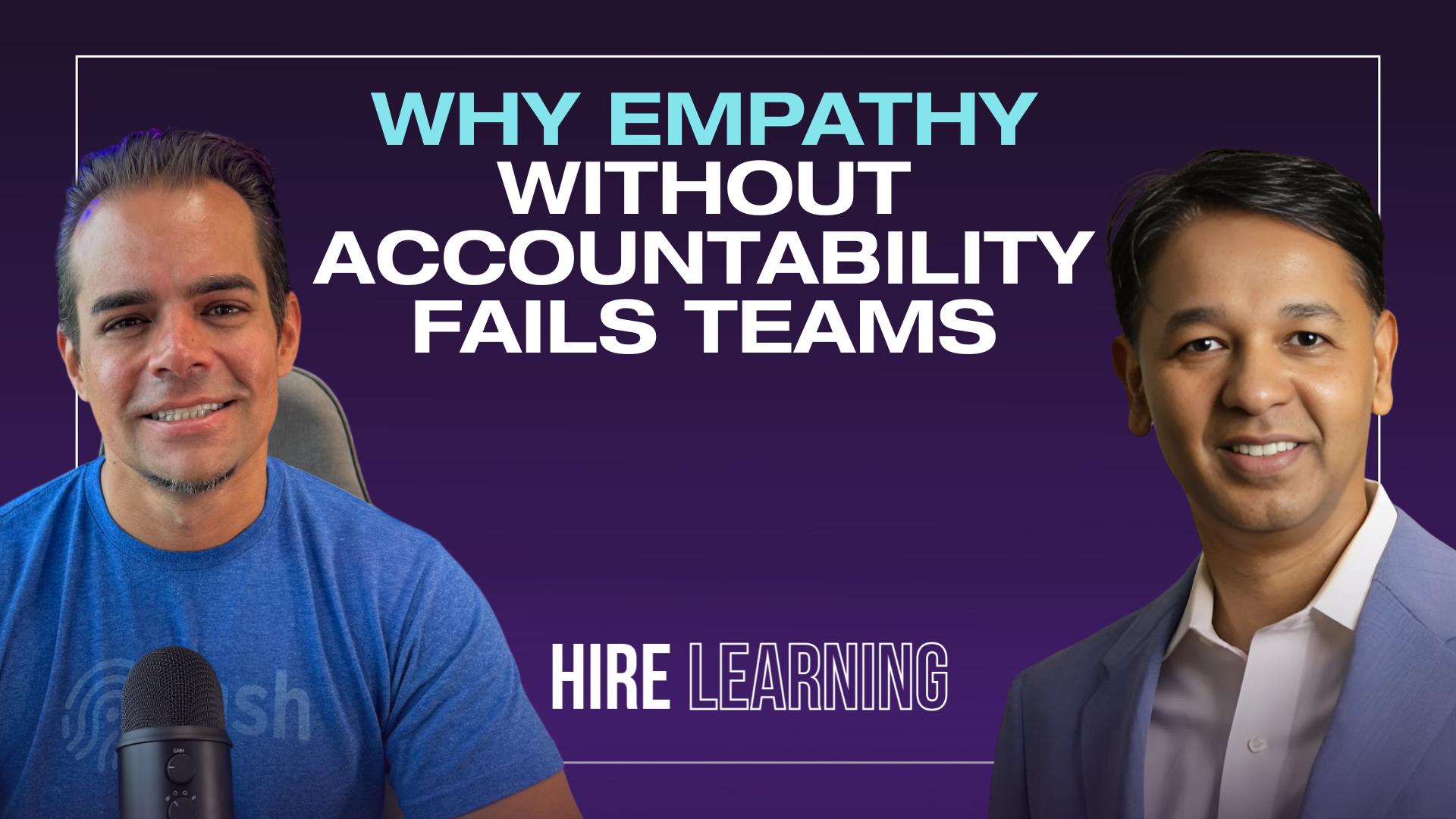One of the greatest (and humbling) lessons learned from HR management is that all the small things we have traditionally obsessed over do not matter if you are neglecting talent experience management.
Create a positive and engaging work environment. Maximize your employees’ potential. Retain top talent.
Sweat the things that directly impact your people.
Today, we want to break down the key elements of talent experience management, including its definition, benefits to organizations, and how to effectively implement it.
What is talent experience management?
Talent experience management is a comprehensive approach to employee management that focuses on nurturing a positive and engaging work environment. It encompasses various aspects of the employee journey, starting from recruitment and onboarding, extending to training and development, and encompassing employee engagement and retention.
With talent experience management, the goal is to create a workplace that supports, includes, and empowers employees, enabling them to feel valued, motivated, and fulfilled. By considering the entire spectrum of an employee's experience, organizations can foster a culture that enhances job satisfaction, productivity, and overall well-being.
At MSH, we're passionate about helping companies adopt effective talent experience management practices. Our expertise spans every step of the process, from finding the right candidates during recruitment to ensuring seamless onboarding. We also focus on providing opportunities for growth through tailored training and development initiatives. By prioritizing a supportive and inclusive work environment, we strive to empower employees and create a workplace where they can truly thrive.
The benefits of talent experience management
When it comes to talent experience management, the benefits for your organization are game-changing. Here's a glimpse into what you can expect:
- Boosted employee retention: By creating a work environment that rocks, you'll see a significant drop in turnover rates. When employees feel appreciated and satisfied, they're more likely to stick around for the long haul.
- Skyrocketing productivity: When your team feels valued and supported, they bring their A-game. You'll witness a surge in productivity as they go above and beyond to deliver exceptional results.
- Elevated reputation: A killer work experience isn't just great for your current employees—it puts your organization on the map as a top-notch workplace. Get ready to attract top talent like bees to honey.
- Unleashed innovation: When creativity flows freely in an inclusive and supportive environment, your team will generate mind-blowing ideas. Brace yourself for breakthrough innovations that propel your organization to new heights.
These are just a taste of the benefits you can enjoy when you make talent experience management a priority.
Keep these in mind when onboarding new hires
There are four critical considerations when implementing a talent experience management strategy in your organization. These include:
- Recruitment and onboarding: Attracting the highest quality talent is imperative for every organization. Talent experience management ensures that the recruitment process is fair and transparent and that new hires are effectively onboarded and supported during their first weeks and months on the job.
- Training and development: Providing employees with the skills and knowledge they need to succeed in their roles is an essential aspect of talent experience management. Training can include formal training programs and informal opportunities for employees to learn and grow on the job.
- Employee engagement: Ensuring employees feel valued and included in decision-making is essential to creating a positive work experience. This can involve providing opportunities for employees to collaborate and contribute their ideas and offering recognition and rewards for their efforts.
- Workplace culture: An organization's culture is essential to each employee. Talent experience management involves creating an inclusive, supportive, and empowering culture that helps employees feel a sense of belonging.
- Work-life balance: Ensuring employees have a healthy work-life balance is an essential aspect of talent experience management. This can involve providing flexible work arrangements, such as telecommuting or flexible scheduling, and promoting wellness programs and initiatives.
Implementing talent experience management in your organization
To effectively implement talent experience management in your organization, there are several steps you can take:
- Review your current HR practices: Take a look at your current HR policies and procedures to identify areas for improvement. This can involve gathering employee feedback through surveys or focus groups to better understand their experiences and needs.
- Set clear goals and objectives: Determine what you want to achieve through your talent experience management efforts, and set clear goals and objectives to guide your actions.
- Communicate with employees: Ensure that employees are aware of your efforts to improve the work experience and involve them in the process. This can include holding regular meetings or
Measuring the success of talent experience management
Measuring the success of talent experience management is a critical aspect of ensuring that your efforts positively impact your organization. By tracking key metrics, you can better understand the effectiveness of your talent experience management strategies and identify areas for improvement.
There are several key metrics that organizations can track to measure the success of talent experience management:
- Employee satisfaction: Surveying employees to gather feedback on their work experiences can help you understand their levels of satisfaction with their jobs, the work environment, and the organization's overall culture. By regularly collecting and analyzing this data, you can identify areas of strength and areas for improvement and make changes as needed to enhance employee satisfaction.
- Retention rates: High retention rates are a sign of a positive work environment, as employees are less likely to leave an organization they are satisfied with. Tracking retention rates over time can help you understand the effectiveness of your talent experience management efforts and identify any issues causing employee turnover.
- Productivity: Improved productivity is a crucial benefit of talent experience management. Employees who are satisfied and engaged in their work are more likely to be motivated and produce high-quality work. Tracking metrics such as the number of tasks completed or the speed at which duties are met can help you to understand the impact of your talent experience management efforts on productivity.
- Engagement. It's vital to monitor and review how invested and involved employees are in their work and the organization. Tracking employee engagement scores can help you understand how well your talent experience management strategies foster a sense of connection and commitment among employees.
In addition to tracking these metrics, it's crucial to regularly gather employee feedback through surveys, focus groups, or one-on-one conversations. This can help you to get a more nuanced understanding of their experiences and needs and identify specific areas for improvement. By regularly measuring and evaluating the success of your talent experience management efforts, you can ensure that your strategies are having a positive impact on your organization and your employees.
Big Takeaway
Talent experience management is a crucial aspect of human resource management that involves creating a positive and engaging work environment for employees, maximizing their potential and retaining top talent.
By considering all aspects of the employee journey and creating a supportive, inclusive, and empowering work culture, organizations can improve employee retention, increase productivity, enhance their reputation, and foster more incredible innovation.
If you’re looking for help with your talent management or talent acquisition strategy, contact MSH today. We’re here to help.


.png)
.png)